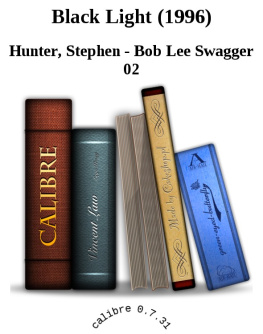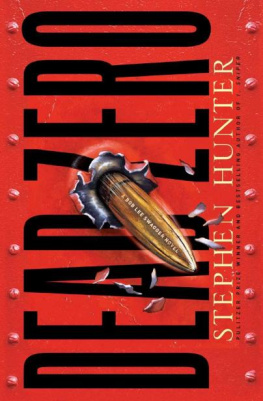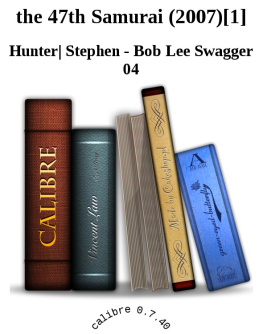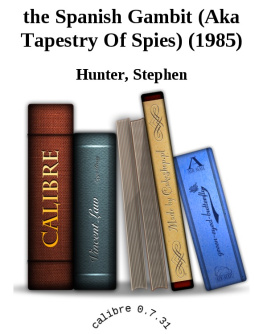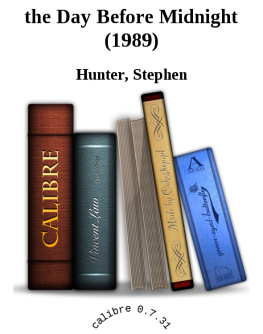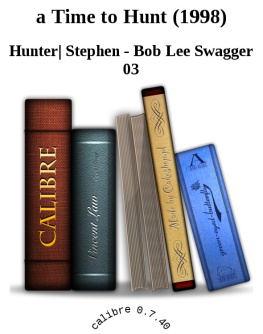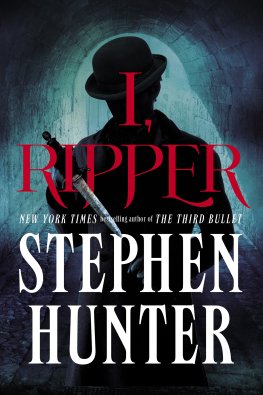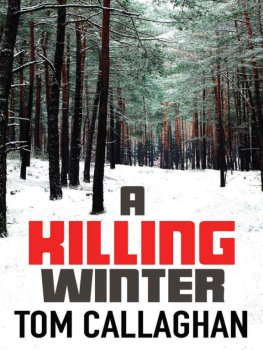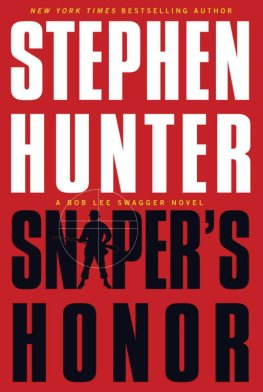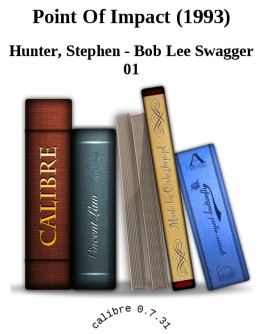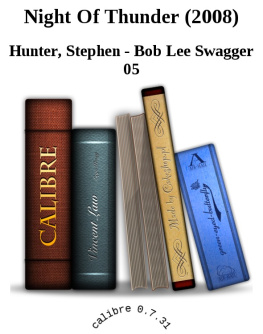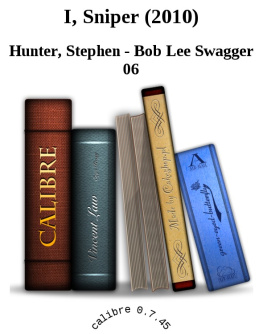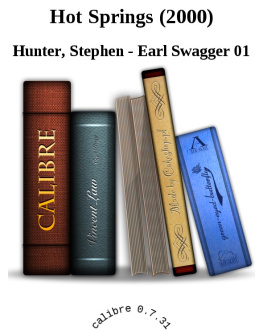Black Light
Stephen Hunter
*
Today you can drive south from Fort Smith down to Blue Eye in Polk County in about an hour, by way of the Harry Etheridge Memorial Parkway.
It's a bright band of American road, one of the finest in America, even if it didn't quite have the anticipated effect of turning Polk County into the Branson of West Arkansas and even if some local cynics call it a pork way and not a parkway. Fast-food restaurants and super gas stations cluster at its exit ramps, pennants flapping in the breeze; the high signs of national motel chains--Days Inn, Holiday Inn, Ramada Inn--can be seen from the roadway, even if the motels are never more than half full and the anticipated Polk County land boom never quite took off. The land, especially as you near Blue Eye, county seat of Polk, becomes spectacular for the Ouachita Mountain range, the only east-west range in America, a heaving sea of pine-crusted earth and rock.
The parkway was finished in 1995, under the sponsorship of Boss Harry's son, Hollis Etheridge, then a member of the United States Senate and later a presidential aspirant. It was the son's idea to honor his father, an authentic great man, who had been born dirt-poor in Polk County and had found his fortune first in the intense ward politics of Fort Smith and then in the true corridors of power in Washington, where he was a fifteen-term congressman and the chairman of the House Defense Appropriations Committee.
It was only fitting that Polk County and Fort Smith should honor a man who'd brought so much glory--and so much patronage--their way.
In 1955 no parkway existed, nor could one even be imagined.
You got from Blue Eye to the big city the way Harry had when he'd moved up there just after the Great War-that is, along snaky, slow Route 71, as piss-poor an excuse for a road as could be imagined, two lanes of shabby blacktop cranking through the mountains and the farmland, widening every ten miles but just slightly for one-horse towns like Huntington, Mansfield and Needmore or Boles or even, the poorest and most pathetic, Y City. It was just the hard scrabble landscape of one of America's most wretched states, hills too mean to be farmed, valleys where desperate men eked out some kind of subsistence-level survival, and now and then some cultivated land but more usually the bleak shacks of sharecroppers.
One hot morning in July of that year, a Saturday, at the Polk and Scott county line on U. S. 71 about twelve miles north of Blue Eye, a state police black and white Ford pulled over to the side of the road and a tall officer got out, removed his Stetson and ran his sleeve over the sweat on his forehead. He wore three yellow sergeant's stripes on his shoulder and, under a gray brush cut, had the flat-eyed, incapable-of-surprise face of a noncommissioned officer in any army or police force in the past four thousand years. A whole phalanx of wrinkles moved across his leathery face, which had been baked in the sun for so many years it resembled a scrap of ancient hide. His eyes were slitted and shrewd, eyes that missed nothing and also expressed nothing.
He had a voice so deep and raspy it sounded like someone cutting through a three-hundred-year-old hardwood pine with a three-hundred-year-old saw. His name was Earl Swagger and he was forty-five years old.
Earl looked about. The road was cut into the slope here, so that there was a high bank on one side, and on the other the land fell away. Not much to see, other than a goddamned billboard for Texaco gasoline: just a south-slope close-grown forest, hard to walk through, a cutting maze of shortleaf pine, black oak and black hickory with a tangled undergrowth of saw brier and Arkansas yucca. Dust seemed to hang in the air; there was no breeze, no sense at all of mountain crispness.
You looked back toward Blue Eye and your vision was cut off by the hump of Fourche Mountain up ahead, which just appeared to be a huge wall of green.
On the road, an armadillo had been smeared to meat and blood and shattered shell by a logger's rig. In the still heat, cicadas hummed, sounding like a drunken quartet of Jew's harps. It hadn't rained in weeks: forest fire weather. It reminded Earl of other hot, dusty places he'd been: Tarawa, Saipan and Iwo Jima.
He checked his Bulova. He was early, but then he'd been early most of his life. It was 9:45 a.m. The others were still fifteen minutes off.
Earl put his Stetson back on. A Colt Trooper .357 rested under a flap on a holster at his right hand; he hitched it up, for the heavy weight of the big pistol was always drawing his belt downward and it was a continual battle to keep the gun where it was supposed to be.
Thirty gleaming nigh-velocity soft-point cartridges rode in the belt loops, gleaming because unlike other officers he removed them each night from the loops and wiped them off to prevent them from corroding in the moisture the leather attracted. His fifteen years in the Marine Corps had taught Earl many lessons, but the most important of them was: always take care of your equipment.
It was a melancholy day, which, just yesterday, had promised so much happiness: July 23, 1955. Jimmy Pye was getting out of prison after ninety days up in the Sebastian County jailhouse at Fort Smith. Jimmy's cousin Bub would meet Jimmy at the jail gate and the two would take the Polk County bus. Earl would pick them up at 4:30 p.m. and take Jimmy over to Mike Logan's sawmill in Nunley, where Mike had promised Jimmy a job. That was important: Jimmy had to get off on a good start if he was to make a go of it, and by God, Earl had promised Jimmy's wife, Edie, that he would see to it that Jimmy got himself straightened out this time. Earl had reluctantly first arrested Jimmy in 1950, when Jimmy was sixteen, on a routine breaking and entering; he'd busted him again in 1952, twice in 1953.
Each time. Jimmy'd charmed his way out of it, for that was one of Jimmy's gifts: he wasn't just handsome and the best high school athlete ever seen in Polk County, but he had a sweet charm; he made people care for him. He'd grown up wild: his father, after all, had been killed on Iwo Jima, and Earl had sworn to the dying man that he'd look after Jimmy, and pledges made on a battlefield have a huge weight back in the real world. Earl's wife, June, had once even said, "I swear. Earl, you care more for that wild white-trash boy than you do for your own son."
It wasn't true. Earl knew, but he also knew that people might see things that way. When you looked at Jimmy you just knew he could be everything that his poor father had dreamed of: he was smart enough for college and if steered right could go on to a wonderful life. He'd married the prettiest girl in all of Polk County when he was twenty-one years old just four months ago. But it was as if he had some twisted wire in him: just when he got a thing that no one else could get--Edie White, for instance--he'd throw it away.
So it was set to be a day of celebration, on the premise that ninety long days in the jailhouse would straighten out anybody: a new life for Jimmy and Edie, all of Earl's obligations to Jimmy's dad taken care of and the future before them all.
Then Earl watched as another vehicle drew into sight, a black squad car rolling up 71 from Blue Eye. It pulled over and a Blue Eye deputy named Lem Tolliver, a big man, got out and Earl remembered why he was there.
"Howdy, Earl," called the deputy, "we late or you early?"
"I'm early. Besides, the damn dogs ain't here yet. I hope that goddamned old man don't forget."
"He won't," called the man, then turned and opened the rear door of the car.
"Okay, boys, out you go. We's here."
In prison denims, two sunburned old boys climbed out of the back of the truck. Earl knew them: Lum and Jed Posey spent more time in the Blue Eye lockup than out of it. They were always in petty trouble with the law for every damned little thing you could imagine, usually whiskey running, which was the federal boys' problem, but also petty larceny, car theft, shoplifting, anything that'd put a bite of food down their gullets. But Earl had thought of them as essentially harmless.

